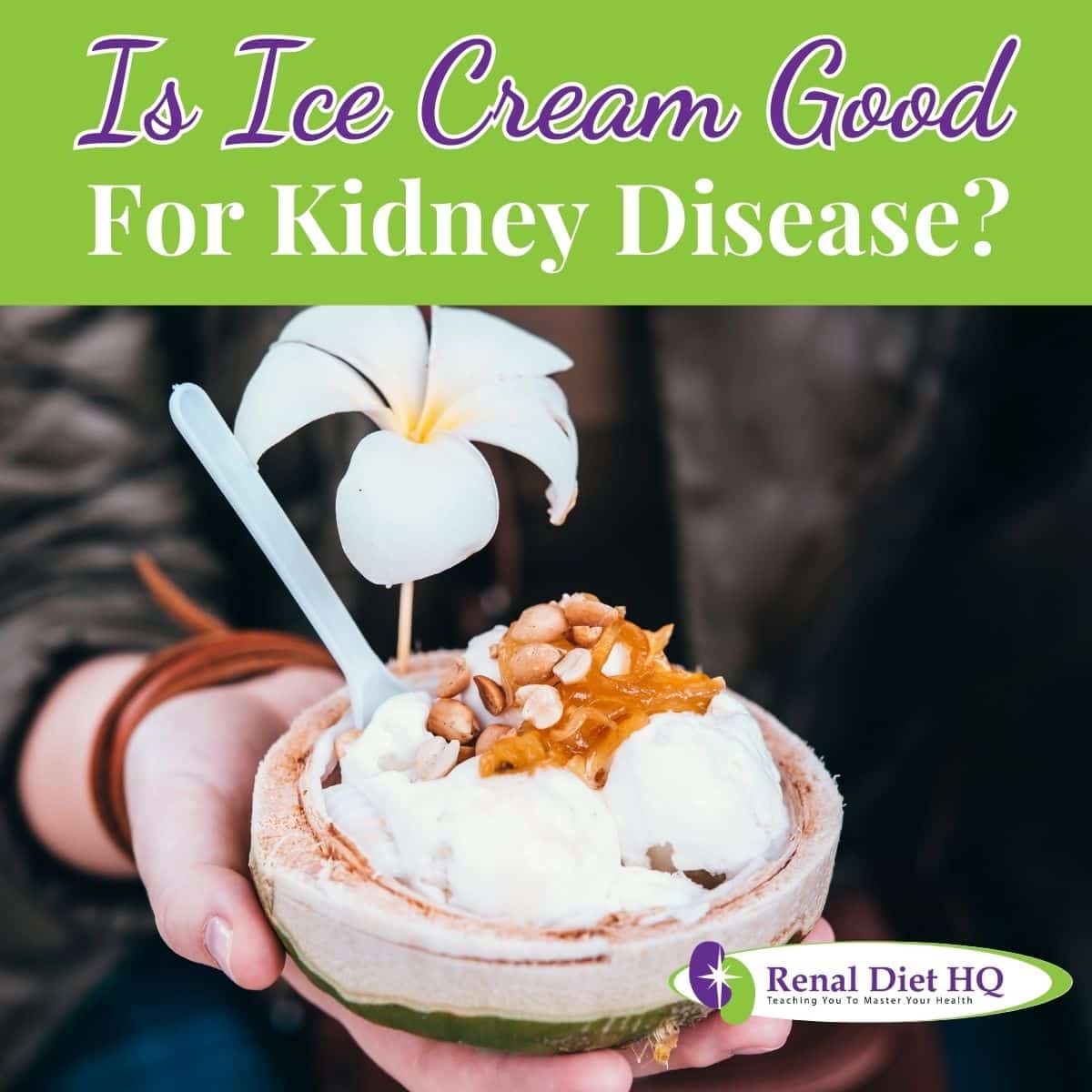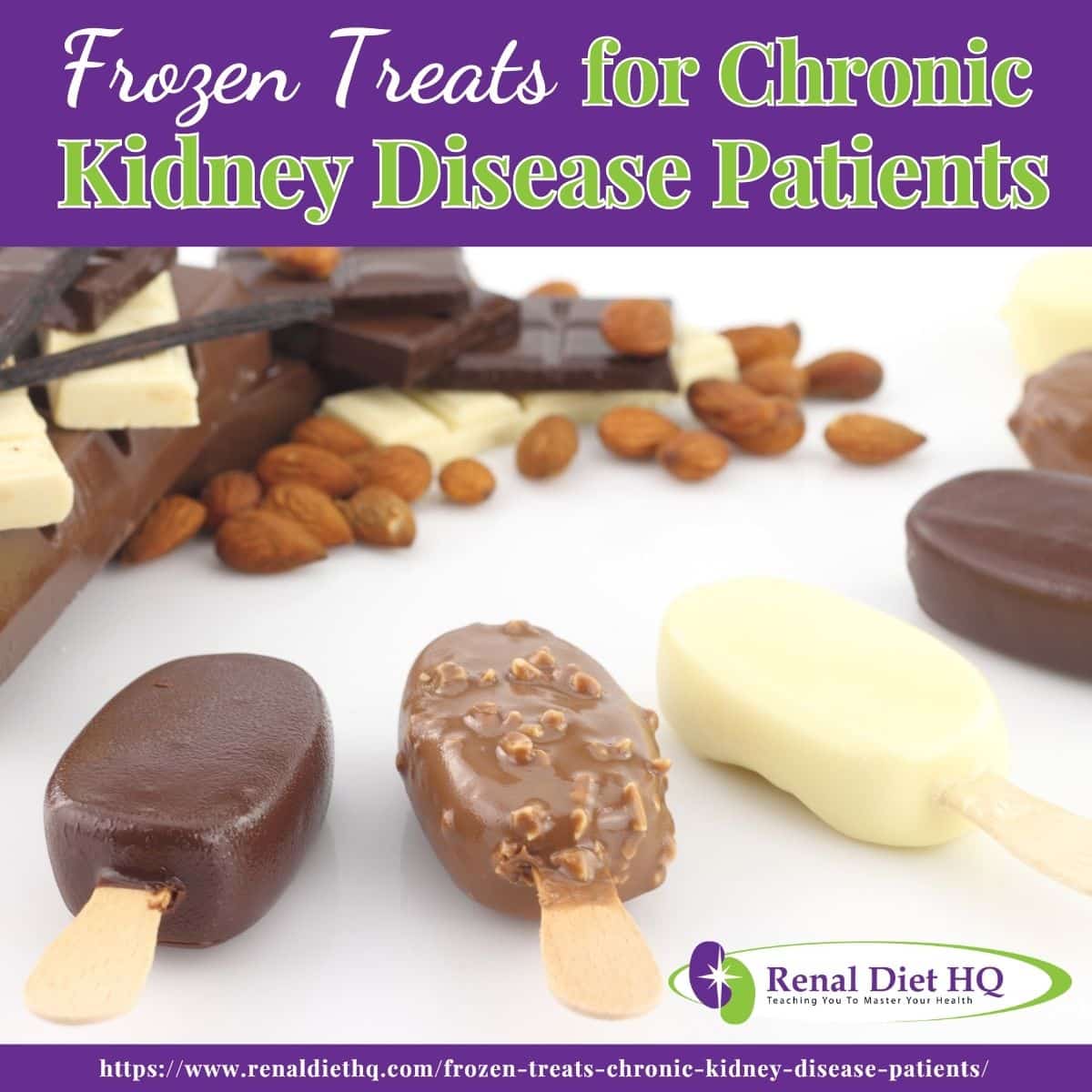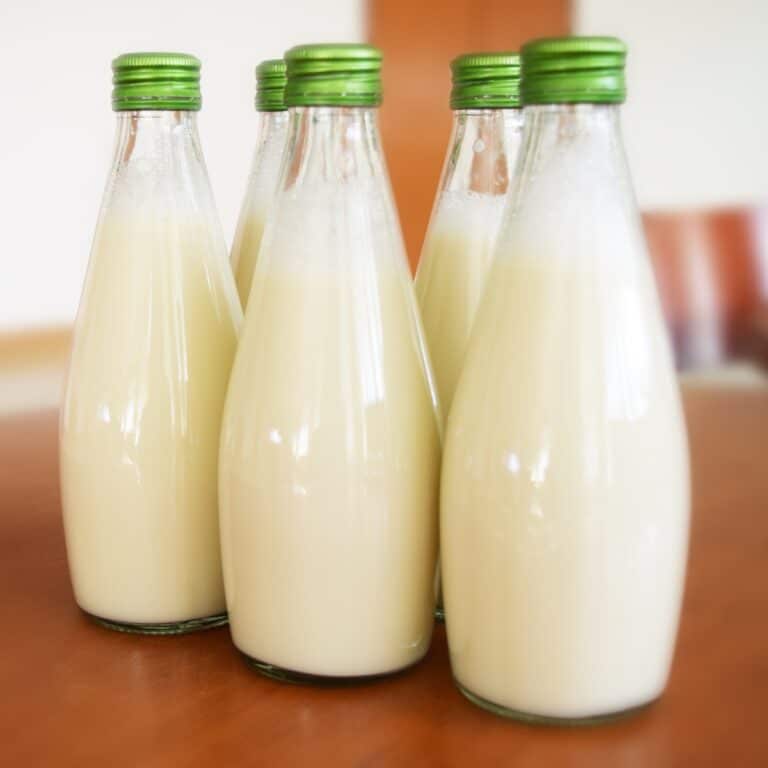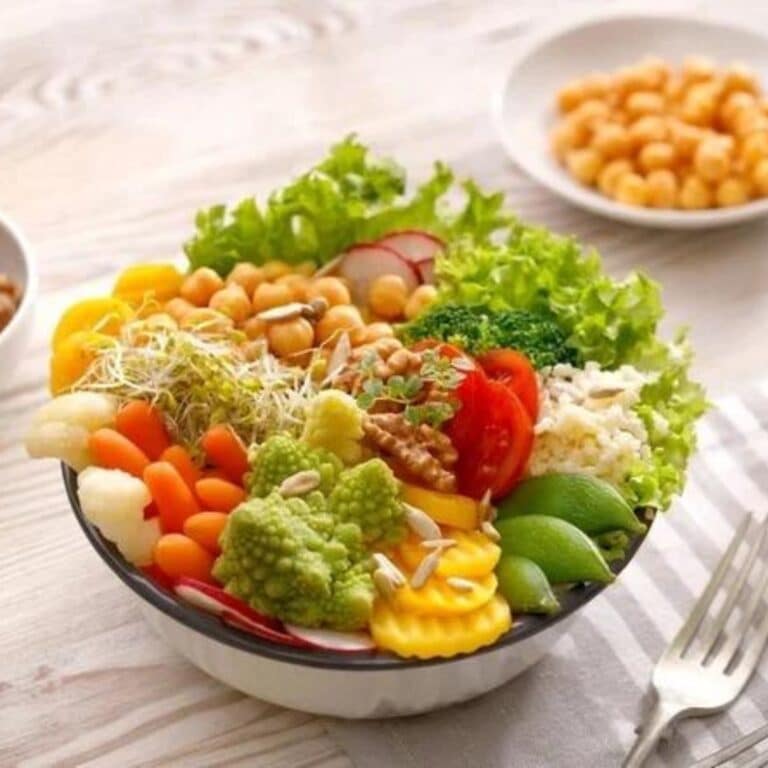Frozen Treats for Chronic Kidney Disease Patients
We all scream for ice cream! Whether it's a scoop of classic vanilla, a swirl of mint chocolate chip, or a cup of frozen yogurt, ice cream is one of the most beloved treats around the world.
But if you have Chronic Kidney Disease (CKD), don’t worry – there are still plenty of options when it comes to frozen desserts.
In this article, we’ll take you on an icy tour around the world and explore some delicious renal diet ice cream brands for CKD. So grab your spoon and let's dive in!
Let's talk about what the best ice cream for kidney patients is! And if you need kidney friendly desserts, check it out as well.
Gone are the days when frozen desserts weren't available for those suffering from Chronic Kidney Disease (CKD).
Today, thanks to advancements in food science, those living with CKD can enjoy delicious treats without worrying as much about their health or nutrition.

In this article we will explore the different types of frozen desserts available for those who suffer from CKD and how they can be prepared safely so everyone can indulge and still maintain good health.
We'll also provide tips on what ingredients should be avoided when making these sweet snacks as well as advice on how to make them extra special. So whether you're looking for something to please a loved one or just want to treat yourself to something yummy, read on!
Jump to:
- Why Say No To Dairy Ice Cream?
- Is Ice Cream High In Potassium?
- Is Ice Cream Good For Kidney Disease?
- Sugar In Ice Cream
- Phosphorus In Ice Cream
- Who Needs Low Potassium Ice Cream?
- Low Potassium Ice Cream Options
- Best Choices For Renal Diet Ice Cream
- Other Low Potassium Frozen Dessert Ideas
- Examples Of Low Potassium Desserts
- Frequently Asked Questions
- Making The Best Choice For Your Health
Why Say No To Dairy Ice Cream?
It's no surprise that ice cream is a popular treat for many people. But if you're living with chronic kidney disease, it may be best to steer clear of traditional dairy-based ice creams.
Dairy products contain large amounts of phosphorus and potassium which can place an extra burden on your kidneys and further damage them over time.
Thankfully there are plenty of alternatives out there when it comes to delicious frozen desserts that won't harm your health.
One great option is to opt for plant-based ice cream made from nuts or soy milk, which provides the same creamy texture without any heavy dairy ingredients.
Many brands even add natural sweeteners like honey and agave syrup as well as flavors like chocolate, mint chip, and strawberry.
Giving you all the tasty options you'd expect from regular ice cream! Plus, these vegan treats provide essential nutrients such as vitamins A & C, iron, calcium, and magnesium.
If ice cream isn't quite what you're looking for then don’t worry. there are still plenty of other options available including sorbets, sherbets, frozen yogurts or fruit bars.
These healthier alternatives have fewer calories than their full fat counterparts but still taste just as good!
Try experimenting with different recipes until you find one that fits your needs perfectly - not only will this help satisfy your craving for something cold and sweet but it'll also keep your body healthy in the process.
Set some smart goals for chronic kidney disease for yourself and you can start with these frozen treat options.
Is Ice Cream High In Potassium?
When it comes to frozen desserts, people with chronic kidney disease need to be mindful of their dietary restrictions.
One such nutrient is potassium, which is found in many foods including ice cream. But how high in potassium really is ice cream? Many follow a low potassium diet for kidney disease!
The answer depends on the type and brand of ice cream you are eating. Generally speaking, most store-bought brands of regular vanilla or chocolate ice creams contain low amounts of potassium.
Many people wonder, what is the best peanut butter for renal diet and want to know how it works for frozen desserts? However, if you opt for a specialty flavor like peanut butter swirl or cookie dough, then your potassium intake may increase significantly.
The key is to read labels and watch out for added ingredients that raise the amount of potassium per serving.
No matter what type of ice cream you choose though, moderation is always important when considering any food item.
Eating too much can lead to an overload of nutrients like phosphorus and sodium – both of which can worsen symptoms associated with chronic kidney disease.
To keep things balanced while still enjoying a sweet treat now and then, try opting for smaller portions or replacing traditional flavors with low-potassium options like sorbet instead!
| Product | Serving Size (g) | Calories (kcal) | Protein (g) | Carbohydrate (g) | Fat (g) | Sodium (mg) | Potassium (mg) | Phosphorus (mg) |
| Regular Ice Cream | 94 | 159 | 3.3 | 17 | 7.9 | 50 | 60 | 50 |
| Sorbet | 94 | 94 | 0 | 23 | 0 | 0 | 6 | 2 |
| Sherbet | 94 | 138 | 1.6 | 26 | 3.6 | 67 | 55 | 33 |
For More Recipes and Ideas --->> Get Your Free Meals and Recipes That Are Perfect for Pre-Dialysis Diets, Pre-Dialysis with Diabetes, or Dialysis Diets.
Is Ice Cream Good For Kidney Disease?
Eating ice cream can be a great way to satisfy your sweet tooth, but if you have Chronic Kidney Disease (CKD) it's important to be mindful of what kind of ice cream you're eating.
Traditional dairy ice cream is high in phosphorus, potassium and sodium, which can put stress on your kidneys.
However, there are plenty of alternatives that are just as delicious and much better for your health! Frozen fruits blended with yogurt or non-dairy milk provide important vitamins and minerals without the extra strain on your kidneys.
You can also make banana “ice cream” by blending frozen bananas with maple syrup or artificial sweeteners for sweetness.
Look for brands that use plant-based milks like almond or coconut instead of cow’s milk – just make sure to read the labels carefully and yes - bananas can be a high potassium food!
So is ice cream good for people with kidney disease? While traditional dairy ice cream isn't ideal because of its high levels of phosphorus, potassium and sodium, there are still plenty of options out there that are both delicious and kidney friendly.
Just remember to pay attention to portion size and sugar content when you're indulging in any kind of frozen dessert.

Sugar In Ice Cream
Sugar-sweetened ice cream can be a major contributor to chronic kidney disease for those who have it. In fact, sugar is one of the most common ingredients in frozen desserts and contributes significantly to the calorie content.
For people with chronic kidney disease, eating high amounts of sugar found in these frozen treats can be dangerous as it increases their risk for complications such as diabetes or heart disease.
There are many options available when it comes to choosing a frozen dessert that is more suitable for those with chronic kidney disease.
With careful consideration, individuals can choose between:
- Sugar-free ice cream
- Low sugar-content ice cream
- Artificial sweeteners and sugar alternative ice creams
By selecting a lower sugar option using artificial sweeteners or other alternatives such as stevia, people with CKD will still be able to enjoy delicious frozen treats without compromising their health. You can avoid kidney failure with dietary changes.
These substitutes may also offer additional benefits like fewer calories, better glycemic control, and improved nutrient absorption compared to regular sugary varieties. Additionally, there are even lactose-free versions made from plant sources if dairy allergies are an issue!
Choosing a healthier version of your favorite treat doesn't mean you need to sacrifice taste either; there are plenty of tasty options available on the market today that won't compromise your dietary needs nor put you at risk of further medical issues down the line due to consuming too much sugar!
Phosphorus In Ice Cream
Now that we've discussed the amount of sugar in various frozen desserts, it's time to consider another important component: low phosphorus foods.
Phosphorus is a mineral found naturally in many foods and can also be added as an ingredient to processed food items like ice cream.
Understanding how much phosphorus is present in different types of ice cream helps people with chronic kidney disease make informed dietary decisions.
When it comes to phosphorus levels in ice cream, there are essentially two categories: low-phosphorus and high-phosphorus varieties.
Low-phosphorus ice creams tend to have less than 150 milligrams (mg) per serving while high-phosphorus options usually contain more than 300 mg per serving.
What’s more, some brands may not list the exact amount of phosphorus on their nutrition labels so it’s best to check with your doctor or dietitian if you're unsure about what type of ice cream is safe for you.
Ideas For Lower Phosphorus Desserts
- Halo Top Creamery Caramel Macchiato Ice Cream: This ice cream option is lower in phosphorus compared to other varieties due to its lack of added dairy products.
- Arctic Zero Vanilla Maple Ice Cream: This option is lower in phosphorus than many of its competitors due to its lack of added dairy products and its high fiber content.
- So Delicious Coconut Milk Almond Crunch Ice Cream: This ice cream is lower in phosphorus as it does not contain dairy products and is made with coconut milk instead.
- Talenti Coconut Almond Chocolate Gelato: This gelato is lower in phosphorus as it does not contain dairy products, and is made with coconut milk instead.
- Enlightened Peanut Butter Fudge Ice Cream: This ice cream is lower in phosphorus due to its lack of added dairy products and its high fiber content.
These low phosphorus ice cream options are beneficial for people with kidney problems because they are lower in phosphorus, which can help prevent further damage to the kidneys.
Additionally, they are a healthier alternative to traditional ice cream options as they are either dairy-free or contain higher amounts of fiber.
Fortunately, those living with chronic kidney disease don't need to miss out on enjoying frozen desserts altogether!
There are plenty of delicious recipes available online! Featuring ingredients like reduced fat milk, Greek yogurt, fruit purees and other substitutions that contain lower amounts of phosphorus than regular store bought ice cream, without sacrificing flavor or texture.
So get creative and try out some new recipes today! Learning how to manage chronic kidney disease starts by taking one step at a time.
Who Needs Low Potassium Ice Cream?
It's like a heavy weight has been lifted off your shoulders. That's how kidney patients feel when they find out there are frozen desserts specifically designed for their renal diet.
Low potassium ice cream is the answer to chronic kidney disease sufferers' prayers, providing them with an enjoyable and nutritious dessert option that won't put additional strain on their kidneys.
The low potassium content of these treats allows those suffering from chronic kidney conditions to enjoy the taste of something sweet without compromising their health.
For instance, many people might be surprised to learn that a serving of Neapolitan ice cream contains only 34 mg of potassium - significantly lower than other flavors such as chocolate, strawberry or vanilla!
This makes it much easier for those with restricted diets due to kidney conditions to indulge in a guilt-free treat every now and then.
These delicious kidney friendly desserts also provide essential vitamins and minerals essential for healthy living.
They contain calcium, phosphorus and magnesium – important nutrients for bone health – as well as vitamin D which helps regulate blood pressure levels. Plus, with no added sugar or artificial colors, you can rest assured knowing that you're consuming quality ingredients with each bite.
Low potassium ice cream offers hope for those struggling to follow a restrictive renal diet while still allowing them to enjoy something sweet once in a while.
With its balanced nutritional content and great tasting flavors, it’s the perfect way to satisfy cravings without straining your body’s delicate balance any further.
Low Potassium Ice Cream Options
Now that you know who needs low potassium ice cream, let's explore some of the frozen treat options available for those with chronic kidney disease.
Here are four delicious and easy-to-find low potassium frozen desserts:
- Frozen yogurt - This creamy treat has a fraction of the calories and fat as regular ice cream. Many flavors have less than 100 mg of potassium per serving!
- Coconut milk ice cream - Is coconut milk good for kidneys? If you’re looking for something dairy free, this is your go-to option. You can find several brands of coconut milk based ice creams without added sugar, making them perfect for anyone watching their calorie intake or blood sugar levels.
- Popsicles - These sweet treats come in many flavors, from classic fruity to more creative varieties like mango chile lime. And they usually contain around 30mg or less of potassium per serving!
- Sorbet - A great way to satisfy a sweet tooth without all the extra ingredients found in other dessert items. Most sorbets contain no more than 40mg of potassium per cup and make a refreshing snack on hot days.
It's important to check labels when selecting any store bought product, but especially if you're trying to stick to a low potassium diet.
Fortunately there are plenty of tasty options out there so you don't have to miss out on enjoying an occasional frozen treat while managing your health condition!
Best Choices For Renal Diet Ice Cream
When it comes to frozen desserts for those with chronic kidney disease, the best choices are usually low potassium ice cream options. Fortunately, there's a wide variety of these renal diet ice creams available on the market today. The best ice cream for ckd has to fit in a few different categories.
In addition to traditional ice cream recipes, you can also find novelties like popsicles and fudgesicles made specifically for people with CKD.
Many brands offer dairy-free alternatives too, so those who cannot tolerate lactose will still be able to enjoy a delicious treat!
To ensure your safety while indulging in sweet treats, always talk to your dietitian before eating any food items labeled "renal diet." They'll help you decide which ones are right for you.
No matter what type of frozen dessert you choose, taking care when selecting snacks is important if you're living with chronic kidney disease.
With proper precautions and moderation, however, enjoying small doses of sugary confections can provide much needed respite from dietary restrictions - something we all need now and then!
Other Low Potassium Frozen Dessert Ideas
Kidney Safe Frozen Treats
Frozen Grapes
You will be surprised just how delicious a treat you can make by simply freezing grapes.
They are so easy. All you have to do is separate the grapes from the stem, rinse and pat dry, and then put them in a resealable bag or container.
Freeze overnight, and then take them anywhere for a delicious cool treat. As they thaw they will get softer, but even straight out of the freezer they are great to just suck on the cool sweetness.
Peach Slush
Better even than ice cream, you can make a sweet slush with fresh fruit like peaches.
Start by choosing ripe peaches, then peel and slice into thin pieces. Freeze for a few hours, and then put them in a food processor. That is all you have to do for a delicious and fruity frozen treat.
Cranberry Ice
Do you love shaved ice? You can make a kidney friendly version right in your own home, and it is so easy too.
Simply put some ice into a blender and push “crush” until the ice is just where you like it to be. Spoon it into a cup or bowl and then pour on a little cranberry juice.
Lemonade Freeze
Do you love the tartness of a margarita? Create your own non-alcoholic frozen drink by simply using lemonade.
All you have to do is pour your favorite sugar free lemonade into ice cube trays, and then once it is frozen run it through the blender. You can also try this same thing with limeade for something closer to a margarita.
Icy Berry Bliss
If you are craving a deliciously sweet and tart frozen treat, try these simply berry ice pops. Simply puree your favorite berries, such as raspberries, strawberries, and blueberries. Are berries high in potassium?
You can use blackberries also, but be aware that the seeds can create a different taste and consistency. Pour the puree into ice pop molds, freeze, and enjoy.
These delicious frozen treats can help you enjoy your summer and stick to your kidney safe diet. Of course, you should always talk to your doctor about what foods are safe for your particular diet.
You should also exercise caution and control, and maintain healthy portion sizes.

Examples Of Low Potassium Desserts
For those looking for a sweet treat that won't wreak havoc on their potassium levels, there are many options.
Low-potassium cakes, cookies and pies can provide the same satisfaction without any risk.
Let's start with low-potassium cakes. While it may sound like an oxymoron, these delicious desserts use ingredients such as almond flour or coconut flakes instead of wheat to avoid raising the blood-level of this electrolyte.
Many recipes also suggest using alternatives such as applesauce (like in our sugar free jello with applesauce) or mashed bananas in lieu of butter for extra sweetness and moisture. With some creativity, one can make delightful treats with minimal effort!
The next option is low-potassium cookies. These too rely on alternative flours like almond meal or oat bran which still give them a crunchy texture but produce less potassium than regular cookie doughs. A bonus is that they often require no baking at all – just mix up the ingredients and let them chill in the fridge! Delicious yet guilt free - what more could you want?
Last but not least, we have low-potassium pies: The use of sugar substitutes helps keep this dessert within safe limits while still providing plenty of flavor from kidney friendly fruits or other natural ingredients.
You can even get creative by experimenting with different crusts such as nut pastes or adding spices to add further character to your pie!
With so many options available, anyone on a restricted kidney diet need not miss out on having something special once in a while!
Frequently Asked Questions
When considering whether or not frozen desserts are healthy for people with chronic kidney disease, it's important to understand the role that diet plays in managing this condition.
Diet is an integral part of maintaining good health while living with a kidney-related illness, and many foods can be harmful if consumed in excess. While there may be occasions where having a dessert could benefit someone with chronic kidney disease, this should always be done cautiously.
With a daily renal diet menu plan, adding desserts is always a smart idea.
Healthy-frozen-desserts made at home offer more control over ingredients and portion size than store bought options do.
Patients can make use of low sugar fruits such as berries to add sweetness to homemade smoothies for kidney disease, popsicles, and milkshakes that won't put them at greater risk of developing complications due to their condition.
In addition to being delicious treats on hot days they can help ensure adequate hydration when combined with water or electrolytes in place of regular milk.
It is possible to enjoy frozen desserts safely with chronic kidney disease but care must be taken to limit intake and choose healthier recipes whenever possible.
Eating sweets regularly might seem fun now but it could have negative effects down the line so consider alternatives like salads and kidney friendly soups and stews for everyday meals instead.
Many people wonder if frozen desserts can be used as a replacement for regular ice cream.
While it may seem like an odd thing to consider, this is actually something that has become more popular in recent times, especially among those with chronic kidney disease.
By considering the ingredients and nutritional content of both types of treats, we can get a better understanding of how they work together.
Here are some key points to keep in mind when evaluating whether or not frozen desserts can act as an ice cream alternative:
Frozen desserts contain fewer calories than traditional ice cream. They have less sugar and sodium than regular ice cream.
Many varieties are lactose free or soy based. These products offer different flavors so you don’t miss out on variety.
In addition to these benefits, many frozen dessert options provide added health advantages due to their high fiber and protein content which make them suitable for individuals with kidney disease.
This type of diet also helps reduce cholesterol levels (7-day meal plan to lower cholesterol) and improve overall health.
The fact that these products come in a variety of flavors means that even those who have dietary restrictions will be able to find something tasty without compromising on nutrition.
Frozen desserts are becoming increasingly popular because they offer a convenient way to satisfy cravings without sacrificing taste or quality.
Not only do they provide numerous health benefits but they help create memorable moments by providing delicious alternatives to traditional ice creams while still being mindful of dietary needs and preferences.
Did you know that the average person consumes more than 22 teaspoons of sugar each day? This staggering statistic makes it even more important to understand how much sugar is consumed in a serving of frozen desserts.
With this knowledge, people can make informed decisions when choosing foods for chronic kidney disease.
When looking at frozen dessert options, understanding their sugar content and portion size can help those with chronic kidney disease make healthier choices.
A single scoop of ice cream contains around 14 grams of added sugars - equivalent to over three teaspoons! It's also important to consider the serving size since most brands are larger than one scoop.
Aside from ice cream, there are several other types of frozen desserts available; sorbet, gelato, sherbet, or low-fat/non-dairy alternatives such as coconut milk ice cream or almond milk popsicles.
Each has its own unique nutritional profile:
Ice Cream & Sorbets: Generally contain higher levels of fat and carbohydrates, which may be difficult for some individuals following a renal diet. •Gelatos &
Sherbets: May have fewer calories per serving because they typically use alternative sweeteners like honey and agave instead of white sugar. •Non-Dairy
Alternatives: Can provide a delicious treat without any animal products while still being lower in fat and carbohydrates compared to traditional dairy varieties.
By researching different brands and comparing nutrition labels carefully, those with chronic kidney disease can find tasty treats suitable for their dietary needs.
Whether opting for an indulgent scoop of ice cream or a refreshing fruit sorbet, knowing how much sugar is consumed per serving allows consumers to enjoy frozen desserts responsibly – all while taking care of themselves in the process.
This is a pertinent question for those with chronic kidney disease, as they must keep track of their sugar intake and find suitable alternatives. Artificial sweeteners are an attractive option for individuals who want something sweet without worrying about the amount of sugar consumed.
When it comes to frozen desserts, there are many varieties that may or may not include artificial sweeteners. For example, some brands might offer both regular and low-sugar options so people can make informed choices according to their dietary needs.
Other companies could produce items that only use natural ingredients such as fruit puree or honey to give them sweetness. It's important to read product labels carefully before purchasing any type of dessert in order to determine if it contains artificial sweeteners or other additives.
In addition, when choosing a frozen dessert while having chronic kidney disease, be sure to check the nutritional information on the package too. The carbohydrate content will help you calculate how much sugar you're consuming per serving size.
Finally, don't forget to consult your doctor or dietitian if you have questions about what types of desserts would be best for your health.
With this guidance and knowledge, you'll be able to enjoy frozen treats again without compromising on taste!
Making The Best Choice For Your Health
It is clear that frozen desserts can be a viable option for people with chronic kidney disease. They are easily available on the market and contain less sugar than regular ice cream, making them a healthier choice.
However, some may object to their use due to the presence of artificial sweeteners.
While it's true that most frozen desserts do contain artificial sweeteners, they should still be considered as part of an overall healthy diet.
The amount present in each serving is usually quite small, so there’s no need to worry about consuming too much of these additives. Plus, many brands offer frozen desserts without any added sweeteners at all!
Overall, frozen desserts provide an easy way for people with chronic kidney disease to satisfy their cravings while keeping their health in check.
With careful selection and moderation, they can even become part of a balanced lifestyle – one where delicious treats don't have to be off-limits. So go ahead and indulge in your favorite frozen dessert; your kidneys will thank you!













